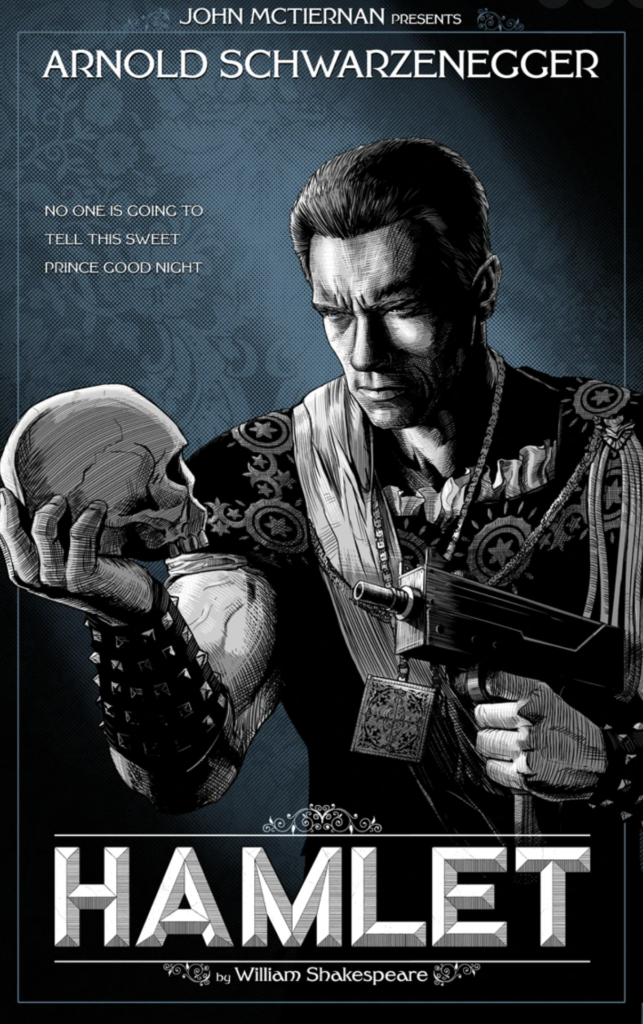To be, or not to be, that is the question:
Whether ’tis nobler in the mind to suffer
The slings and arrows of outrageous fortune,
Or to take arms against a sea of troubles
And by opposing end them. To die—to sleep,
No more; and by a sleep to say we end
The heart-ache and the thousand natural shocks
That flesh is heir to: ’tis a consummation
Devoutly to be wish’d. To die, to sleep;
To sleep, perchance to dream—ay, there’s the rub:
For in that sleep of death what dreams may come,
When we have shuffled off this mortal coil,
Must give us pause—there’s the respect
That makes calamity of so long life.
For who would bear the whips and scorns of time,
Th’oppressor’s wrong, the proud man’s contumely,
The pangs of dispriz’d love, the law’s delay,
The insolence of office, and the spurns
That patient merit of th’unworthy takes,
When he himself might his quietus make
With a bare bodkin? Who would fardels bear,
To grunt and sweat under a weary life,
But that the dread of something after death,
The undiscovere’d country, from whose bourn
No traveller returns, puzzles the will,
And makes us rather bear those ills we have
Than fly to others that we know not of?
Thus conscience doth make cowards of us all,
And thus the native hue of resolution
Is sicklied o’er with the pale cast of thought,
And enterprises of great pith and moment
With this regard their currents turn awry
And lose the name of action.
I had the strangest thing happen today.
I was cleaning up some loose files on the index of this site when I saw there was one file listed as a draft.
Drafts here are blogposts that were never completed and/or posted to the site, and it’s very rare for me to leave them without either posting them or deleting them. And when I find them, I nearly always remember what it was I had set out to write about.
This one drew a blank, though.
All there was in the draft was the long quote in italics. Of course it’s the Hamlet soliloquy, on of the two or three most famous speeches in Shakespeare and the source of movie titles of movies with such diverse stars as Mel Brooks, Robin Williams and William Shatner.
Even Arnold Schwarzenegger, although his version of “Hamlet” was just a poster and a short trailer in “The Last Action Hero” in 1993.

In it, Arnold says “to be or not to be,” then lights a cigar and pushes a detonator button. In the background, an explosion destroys a palace and Arnold delivers three memorable words.
“Not to be.”
That said, I don’t think Arnold, Brooks or Jack Benny was what I had intended to write about. Nor do I think “Star Trek VI: The Undiscovered Country” was on my mind either.
I actually got a clue, but it didn’t help at all. I had posted an image to appear with the title, a poster from the wonderful Henry Fonda movie “My Darling Clementine.” Didn’t ring any bells, so I replaced in with an image from “What Dreams May Come” (1998). There are few movies I can recall that evoke such disparate opinions, with some folks loving it and others thinking it’s truly awful.

If you look at the photo above and other stills from the movie, you might be forgiven for thinking Thomas Kinkade painted it while on an LSD trip. I’m one of the people who love this movie, and the visual aspects of it were one of the main reasons I was excited about getting a DVD player when they first came out.
From there to Blu-Ray and HDTV, the colors and the landscapes are absolutely stunning.
I love the story, too. It’s from a novel by famed science fiction writer Richard Matheson. It’s fascinating that Matheson wrote so often about love, both here and in “Bid Time Return,” which became the lovely movie “Somewhere in Time,” with Christopher Reeve and Jane Seymour.
In “What Dreams,” Robin Williams plays a man whose two children die in an auto accident and then he dies in a separate accident some time later. He and his children essentially go to heaven, but his grief-stricken wife kills herself and winds up in hell.
He decides that heaven is nothing without her and travels into the depths of hell to see if he can save her and bring her back.
When on the verge of failure, seeing that he cannot get through to her, he delivers this wonderful speech.
“Thank you for every kindness. Thank you for our children. For the first time I saw them. Thank you for being someone I was always proud to be with. For your guts, for your sweetness. For how you always looked, for how I always wanted to touch you. God, you were my life. I apologize for every time I ever failed you. Especially this one.”
I still don’t think this was what I intended to write about when I posted the “Hamlet” soliloquy, and I think I may have written about “What Dreams” before, but if you love someone enough to march into hell for them, it’s worth repeating.
There really is nothing more noble about life than true love.

